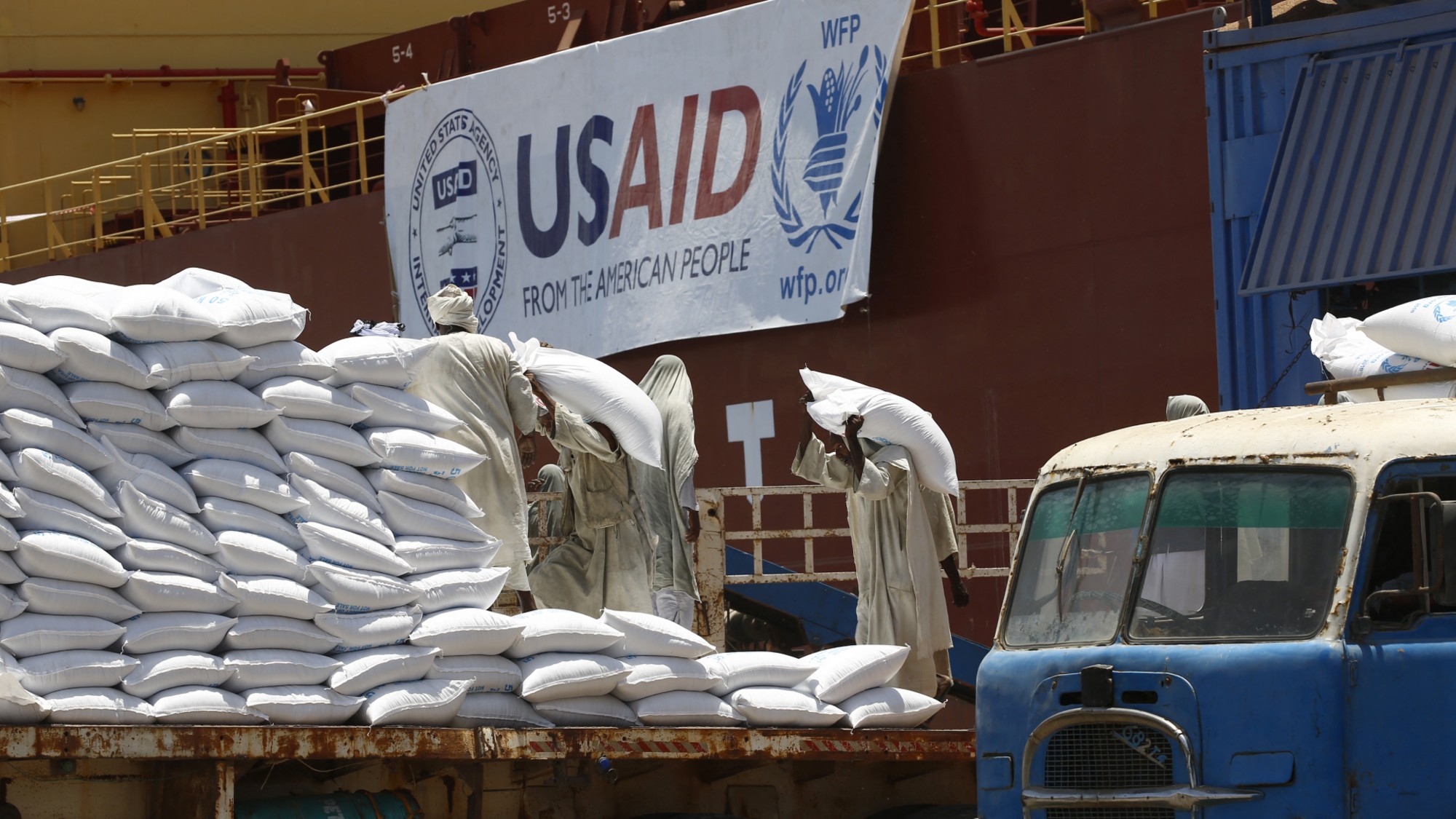How will closing USAID exacerbate humanitarian problems around the world?
The Trump administration shuttered USAID as part of an overall freeze on foreign aid


A free daily email with the biggest news stories of the day – and the best features from TheWeek.com
You are now subscribed
Your newsletter sign-up was successful
The Trump administration's closing of the U.S. Agency for International Development could lead to an increase in humanitarian crises around the world. USAID provided humanitarian aid to more than 100 countries, which means its shuttering could hamper American "efforts to alleviate poverty, disease and humanitarian need," said the Congressional Research Service.
Elon Musk, the head of President Donald Trump's DOGE task force, has announced plans to keep USAID closed permanently, claiming without evidence that it is a "criminal organization" and a "radical-left political psy op"; Trump himself has also ordered all foreign aid to be suspended for 90 days. Critics say this could lead to increased disease, hunger and poverty across the globe.
What did the commentators say?
Trump's decision to suspend aid is "deepening humanitarian crises and putting an untold number of lives at risk, according to front-line aid workers and civilians who rely on American-funded programs," said Katharine Houreld and Rachel Chason at The Washington Post. The "policies of the Trump administration are already having profound consequences for some of the world's most vulnerable people," as soup kitchens "can no longer feed the hungry" and "first responders are unable to reach the dead and wounded."
The Week
Escape your echo chamber. Get the facts behind the news, plus analysis from multiple perspectives.

Sign up for The Week's Free Newsletters
From our morning news briefing to a weekly Good News Newsletter, get the best of The Week delivered directly to your inbox.
From our morning news briefing to a weekly Good News Newsletter, get the best of The Week delivered directly to your inbox.
Many "chaotic scenes were seen in scores of countries as aid organizations warned of the risk of escalating disease and famine," said The Guardian. Access to health care was reportedly blocked, including the $607.5 million in aid allocated for family planning. At least "several thousand women and girls are likely to die from complications during pregnancy and childbirth as a direct result of Trump's order," the outlet said, citing analysis from the Guttmacher Institute.
USAID also assists thousands of people who have low access to water. The program has "projects focused on water security, in Jordan, the Democratic Republic of Congo, Ethiopia, India and dozens of other nations," said Lauren Kent at CNN. These program cuts are not "warnings of what's to come, but examples of what aid workers say is the fallout of the Trump administration's freeze."
Undermining the "access of people around the world to food and water and medicine is not going to make America more secure," said Evan Thomas, a professor of environmental engineering at the University of Colorado in Boulder, to CNN. Thomas also said that the ending of humanitarian aid could allow terrorist groups, like Kenya's al-Shabaab, to flourish. When "people don't have water, when their livestock die, they become very stressed, and there are militias that are willing to take advantage of that stress and recruit for their own aims."
What next?
Despite the culling of USAID, there was "supposed to be a way to get aid through, but there are layers of problems," said NBC News. Countries and humanitarian organizations can apply for waivers to continue receiving "lifesaving" aid, but the "process to apply for a humanitarian waiver is new and mired in confusion and delays." For many of these groups, it is "not clear how the administration is defining 'lifesaving' aid that can continue despite the freeze, or whether the holdups in releasing funds are intentional."
A free daily email with the biggest news stories of the day – and the best features from TheWeek.com
Food resources are also waiver-eligible, but as with other areas, many problems are being reported. Amid the growing concern, politicians, including Republicans, have called for parts of the aid to resume. They are urging Secretary of State Marco Rubio to "distribute the $340 million in American-grown food currently stalled in U.S. ports to reach those in need," said Sen. Jerry Moran (R-Kan.) on X. As of now, the freeze remains in place.
Justin Klawans has worked as a staff writer at The Week since 2022. He began his career covering local news before joining Newsweek as a breaking news reporter, where he wrote about politics, national and global affairs, business, crime, sports, film, television and other news. Justin has also freelanced for outlets including Collider and United Press International.
